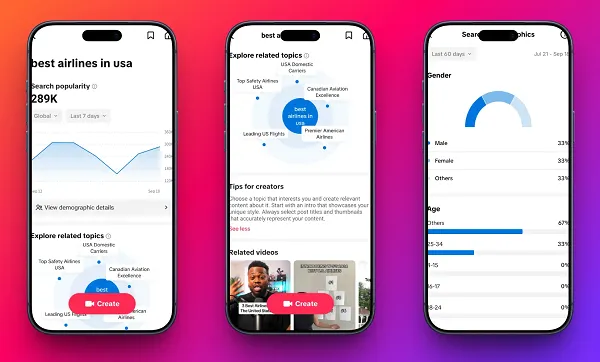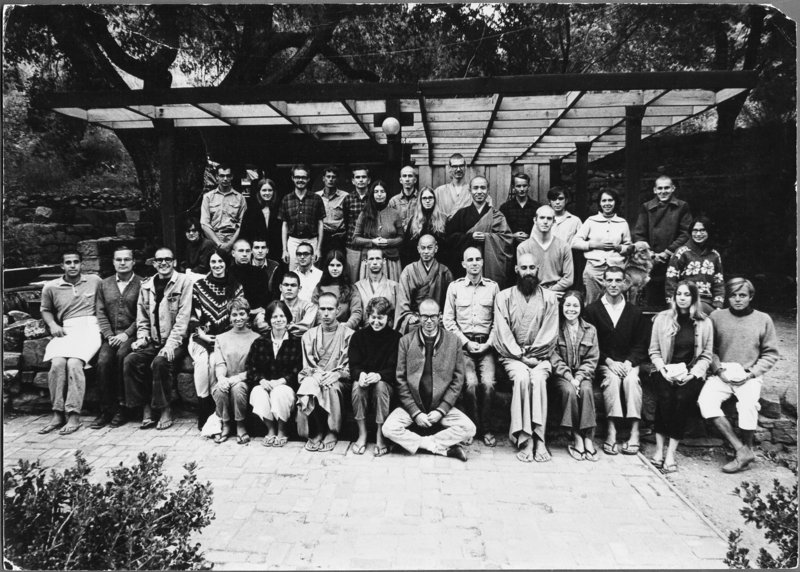Best Winter National Parks in the US to visit
Winter isn’t just a time for cozy sweaters and hot cocoa; it’s also the perfect season to explore some of America’s most stunning national parks! From Arizona to the Smoky Mountains, these parks transform under a blanket of fresh...
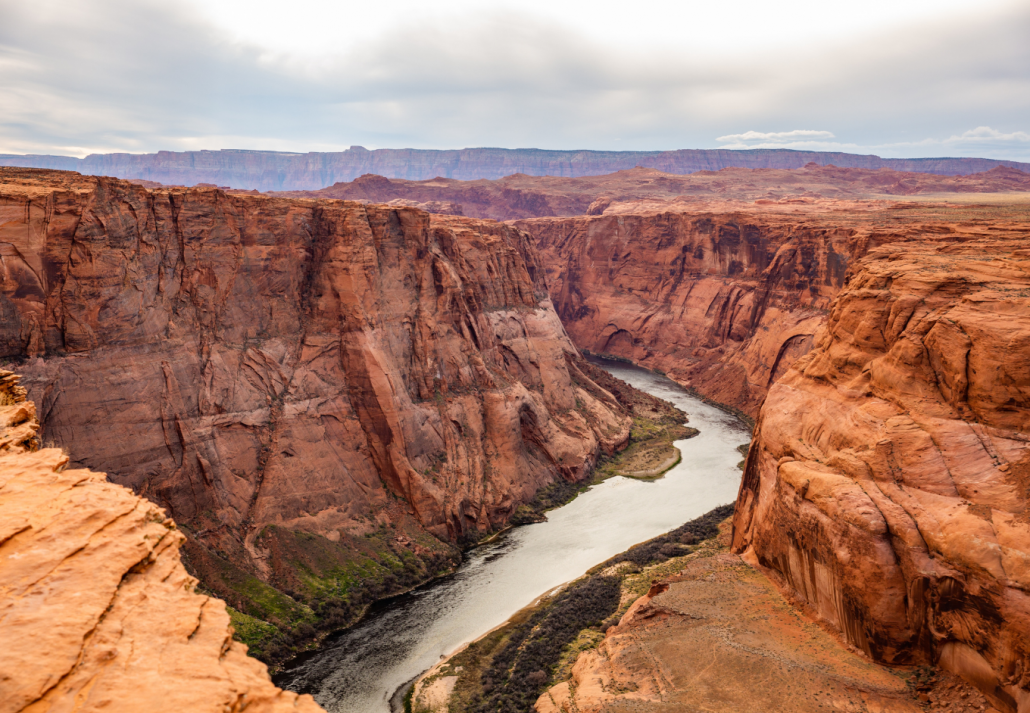
Winter isn’t just a time for cozy sweaters and hot cocoa; it’s also the perfect season to explore some of America’s most stunning national parks! From Arizona to the Smoky Mountains, these parks transform under a blanket of fresh snow, offering serene landscapes, smaller crowds, and unique outdoor adventures. So grab your tire chains, bundle up, and get ready to explore the best winter national parks in Arizona.
1. Grand Canyon National Park, Arizona
When it comes to winter national parks in Arizona, Grand Canyon National Park tops the list. During the winter months, the North Rim is usually closed due to snow, but the South Rim remains open year-round, giving visitors a rare opportunity to explore the park with fewer people around. The South Rim’s Bright Angel Trail provides fantastic winter hiking and stunning views of the Colorado River. If you’re lucky, you might catch a sunset that casts a warm glow over the canyon’s snowy peaks—truly a sight to behold!
Winter at the Grand Canyon offers milder temperatures and a crisp, refreshing air that’s perfect for hikes. Plus, the smaller crowds mean more time to enjoy the views in peace.

2. Saguaro National Park, Arizona
Winter is also the perfect season to visit Saguaro National Park, where the Arizona desert transforms into a cooler and surprisingly lush landscape. You’ll enjoy the advantage of mild winter temperatures in the park’s diverse landscapes, which makes it easier to explore without the intense heat of the summer months.
Hike scenic trails among the towering saguaro cacti and keep an eye out for the many bird species that call this park home. With fewer visitors, you can take in the desert’s tranquility and maybe even capture a fun photo in front of one of these iconic cacti.
3. Death Valley National Park, California
Winter is an ideal time to visit Death Valley National Park. While summer temperatures can reach unbearable highs, winter in Death Valley brings milder temperatures, making it perfect for hiking, camping, and even some scenic drives.
Take the opportunity to explore unique desert landscapes, colorful rock formations, and catch a stunning view of snow-capped mountains in the distance. With fewer people around, it feels like you have the park all to yourself—an adventure you won’t soon forget!

4. Bryce Canyon National Park, Utah
A visit to Bryce Canyon National Park in winter is like stepping into a snowy fairy tale. This park’s famous hoodoos (tall, thin spires of rock) are dusted in fresh snow, creating a mesmerizing landscape. The national park service keeps trails open for visitors, making it possible to hike some of the best trails even in the winter season.
Bryce Canyon also offers cross-country skiing trails and great trails for snowshoeing, giving you plenty of ways to explore the park’s unique formations in winter. Plus, winter nights offer some of the clearest skies for stargazing!
5. Joshua Tree National Park, California
Winter in Joshua Tree National Park means fewer crowds and milder temperatures, making it a great place to explore the desert without the intense summer heat. The winter months are perfect for hiking trails, exploring the park’s famous rock formations, and discovering hidden gems among the towering Joshua trees. It’s a serene place to spend a winter day, and with smaller crowds, you can fully appreciate the park’s beauty and unique landscapes.
6. Yellowstone National Park, Wyoming/Montana/Idaho
Yellowstone National Park in winter offers a whole new level of adventure. This iconic park is famous for its steam vents, geysers, and incredible wildlife. Winter provides a quieter experience, as most visitors come during the summer months. With activities like backcountry skiing, snowshoeing, and winter camping, Yellowstone becomes a winter wonderland. Don’t miss the chance to see the famous Old Faithful geyser surrounded by fresh snow—it’s truly magical!
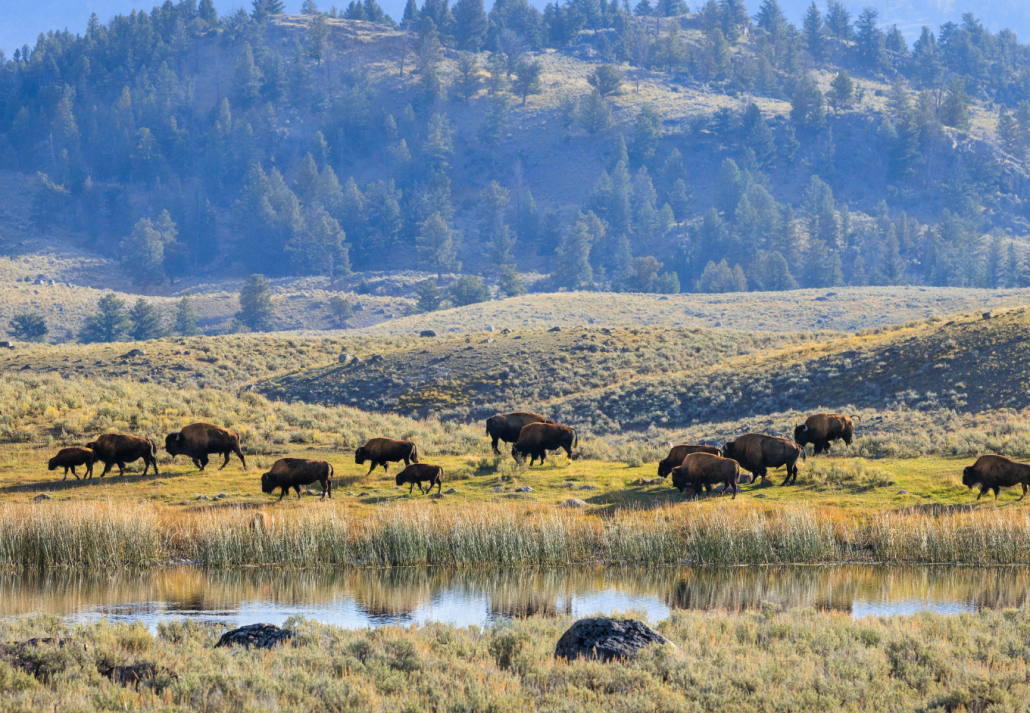
7. Great Smoky Mountains National Park, Tennessee/North Carolina
The Great Smoky Mountains are beautiful year-round, but winter adds a special touch to the park’s scenic beauty. Winter is the perfect time to experience smaller crowds and capture the beauty of snow-covered peaks. The Smokies offer excellent winter hiking opportunities, as well as scenic drives through frost-covered forests.
If you’re lucky, you might spot some of the park’s wildlife, like deer and even black bears, roaming through the frosty landscapes. This park is a great place to spend a winter weekend with family, offering a combination of peaceful nature and rich history.
8. Rocky Mountain National Park, Colorado
Winter transforms Rocky Mountain National Park into a snowy paradise. With some of the best winter activities, including cross-country skiing, snowshoeing, and scenic drives, this park offers something for everyone. The mountains, lakes, and forests look like scenes from a postcard under a blanket of snow. If you’re up for a challenge, explore the backcountry for an unforgettable experience.
The crisp air and stunning views make this park a top destination for winter adventurers, so don’t forget your camera to capture these magical moments.
9. Acadia National Park, Maine
Acadia National Park may be more popular during the summer, but winter brings a different charm to this East Coast gem. Snow falls regularly, covering the park’s landscapes in a serene blanket of white. Winter is ideal for cross-country skiing, winter hiking, and scenic drives along the coast, with fewer visitors around. The combination of snowy landscapes, rocky shores, and winter sunrises makes Acadia a hidden gem during the colder months. Plus, you’ll find plenty of great trails for exploring on foot or skis.
10. Yosemite National Park, California
Last but not least, Yosemite National Park is a fantastic winter destination. While some areas close in winter due to snow, the park is still open year-round and offers plenty to see and do. Enjoy the sight of Yosemite Valley under a fresh blanket of snow, go cross-country skiing, or take in the views of snowy peaks and frozen waterfalls. Yosemite in winter is peaceful, with a unique beauty that’s completely different from its busy summer months.
If you’re looking for an adventure that combines scenic drives, winter camping, and pristine snowy landscapes, Yosemite is a great place to add to your winter travel list.
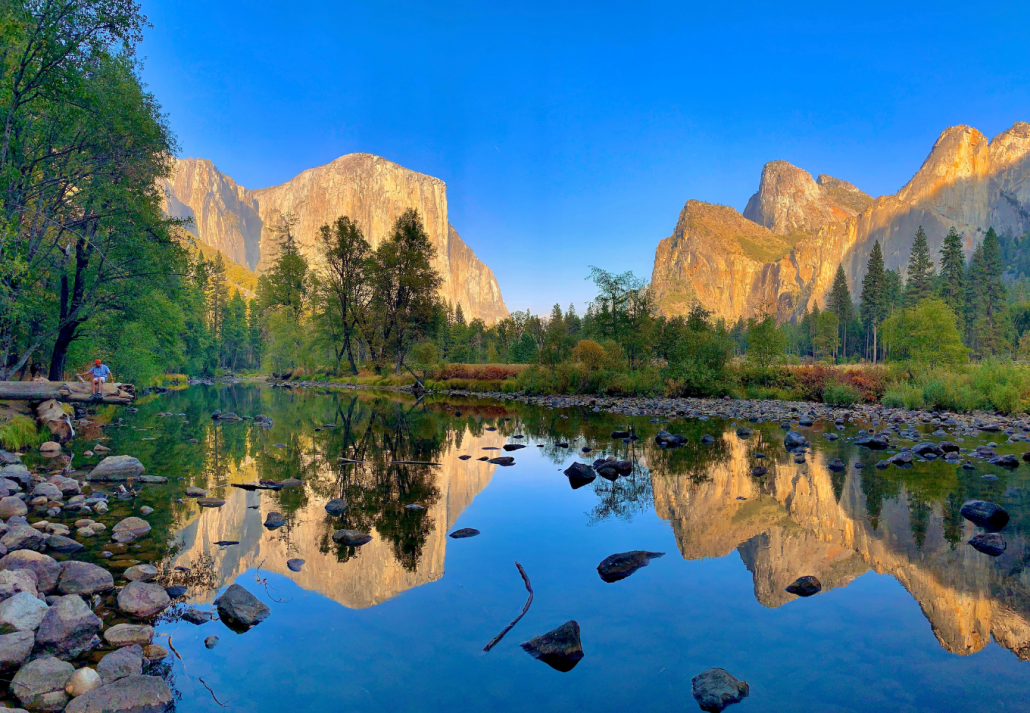
Why Visit National Parks in Winter?
Winter is a time when you can experience America’s best national parks in a new way, from the snowy landscapes of the Grand Canyon State to the frozen waterfalls of Yosemite. These parks are open year-round, and with fewer visitors, you’ll enjoy quieter trails, breathtaking views, and the opportunity to see the parks in their serene winter beauty. And for those looking for a bit more thrill, there are plenty of opportunities for winter camping, cross-country skiing, and snowshoeing.
So, as you plan your next winter trip, consider exploring these fantastic national parks. Whether you’re a fan of snowy peaks, scenic trails, diverse landscapes, or the chance to see wildlife in their natural habitats, there’s something for everyone to enjoy. With the right gear and a sense of adventure, winter can be one of the most rewarding seasons to visit these amazing parks.
FAQs
Do I need special equipment for winter camping in national parks?
Yes, winter camping requires extra preparation. Be sure to bring insulated sleeping bags, four-season tents, and layers for warmth. Tire chains and snowshoes can also be useful depending on the park’s snow levels.
2. Are ranger-led tours available in winter?
Some parks offer ranger-led tours even in winter, often focusing on snowshoeing, stargazing, or wildlife. Check with the specific park’s visitor center to see if tours are available during your visit.
3. Are pets allowed on trails in national parks during the winter season?
Most national parks limit where pets can go, especially on trails, regardless of the season. Always check the park’s pet policies, as pets are usually restricted to certain areas or specific trails.
4. How can I prepare for unexpected weather changes in winter parks?
Winter weather can be unpredictable, so bring layers, water, snacks, and a map. Always check the weather forecast and park alerts before setting out and let someone know your travel plans.

 Troov
Troov 


























